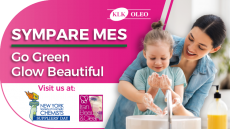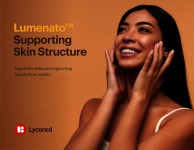Counterfeit consumer goods pose detriment to beauty buyers’ health

Counterfeiting reality
"The threat of counterfeiters is ever-present, affecting both brands and consumers,” announced Anil Gupta, Chief Marketing Officer of MarkMonitor.
Following new research conducted on behalf of independent market research firm Vitreous World, Clarivate Analytics’ brand protection solution, MarkMonitor, states that counterfeit items present a considerable risk to beauty buyers.
The aim of the research was to explore and understand the online buying behaviour of consumer goods including make up, toiletries, vitamins, supplements and medicines, outside of the typical supermarket shopping environment.
Affecting health and wellbeing
China was the only APAC market included in the study. Researchers conducted online interviews, completed between 4th-10th May 2017.
Consumers are seeking natural and organic cosmetics goods that support their efforts toward positive health and wellbeing. As a result, brands are encouraged to maximise trust, certainty and assurance through communcating reliable, overt and searchable claims.
“For brands, it's all about the loss of revenue, reputation and customer trust. However, when it comes to non-genuine consumer goods such as cosmetics, skincare, sun care and medicines, the consequences for shoppers are far greater, affecting their health and wellbeing,” Gupta added.
The findings
Over a quarter of respondents (27%) said that they had unwittingly purchased counterfeit goods over the internet. Of those asked, 32% of respondents confirmed they had purchased non-genuine makeup, while 25% had bought skin care products.
Shoppers were not purchasing these non-genuine goods from a single online channel. Instead, the research found that these items were accessed and purchased via a number of avenues, including online marketplaces (39%), search engines (34%), mobile apps (22%) and social media advertisements (20%).
As part of the research, respondents were also asked which channels they believed to be the most trustworthy. This was measured by considering which brands delivered goods of an acceptable standard, all or most of the time.
The research revealed that brand websites were most trusted (89%). Online marketplaces came second (74%), followed by online pharmacies (67%) and then mobile apps (67%), indicating where brands need to build confidence and reliability.
Awareness and action
To avoid purchasing counterfeit make up and skin care items, both consumers and the companies themselves are spurred to remain informed and proactive about the risks associated with online shopping, especially as these may become more sophisticated with the complexity of digital media and rise of e-commerce names.
Incorrectly or improperly measured ingredients are one of the main causes of confusion between non-genuine and genuine products. This leads to genuine items being compromised and replaced with counterfeit make up and skin care goods.
“It is up to brands to ensure they have a solid online brand protection policy in place to deal with the counterfeit threat and keep their customers safe from harm," emphasised Anil Gupta, Chief Marketing Officer of MarkMonitor.
Getting customer satisfaction right
Nearly 4 out of 10 consumers complain directly to the brand itself following an unwitting purchase of counterfeit goods.
In addition, 34% of respondents have outlined that it is the brand's responsibility to protect them from counterfeited goods.
As a result of these statistics, and as 80% of consumers rely on online reviews as a core part of their buying decision, brands need to ensure they are focusing on their customer satisfaction and service capabilities.
On the whole, the majority of beauty and cosmetics buyers show no interest or willingness to purchase fake goods, with 83% disclosing that they would not opt for non-genuine consumer items, such as make up and skin care.







![Lubrizol has extended its partnership with C-beauty major PROYA. [PROYA]](/var/wrbm_gb_food_pharma/storage/images/_aliases/wrbm_tiny/publications/cosmetics/cosmeticsdesign-asia.com/headlines/brand-innovation/lubrizol-bullish-on-potential-of-c-beauty-growth-potential/17362515-1-eng-GB/Lubrizol-bullish-on-potential-of-C-beauty-growth-potential.jpg)

![Amika is targeting localised innovation to drive success in SEA. [Amika]](/var/wrbm_gb_food_pharma/storage/images/_aliases/wrbm_tiny/publications/cosmetics/cosmeticsdesign-asia.com/headlines/brand-innovation/amika-on-quest-to-address-diverse-hair-needs-in-sea-with-sea-buckthorn-range/17339003-1-eng-GB/Amika-on-quest-to-address-diverse-hair-needs-in-SEA-with-sea-buckthorn-range.jpg)

![Latest developments from the South Korean beauty market. [Getty Images]](/var/wrbm_gb_food_pharma/storage/images/_aliases/wrbm_tiny/publications/cosmetics/cosmeticsdesign-asia.com/article/2024/04/19/korean-wave-able-c-c-kolmar-and-more-in-this-k-beauty-round-up/17357973-1-eng-GB/Korean-wave-Able-C-C-Kolmar-and-more-in-this-K-beauty-round-up.jpg)



